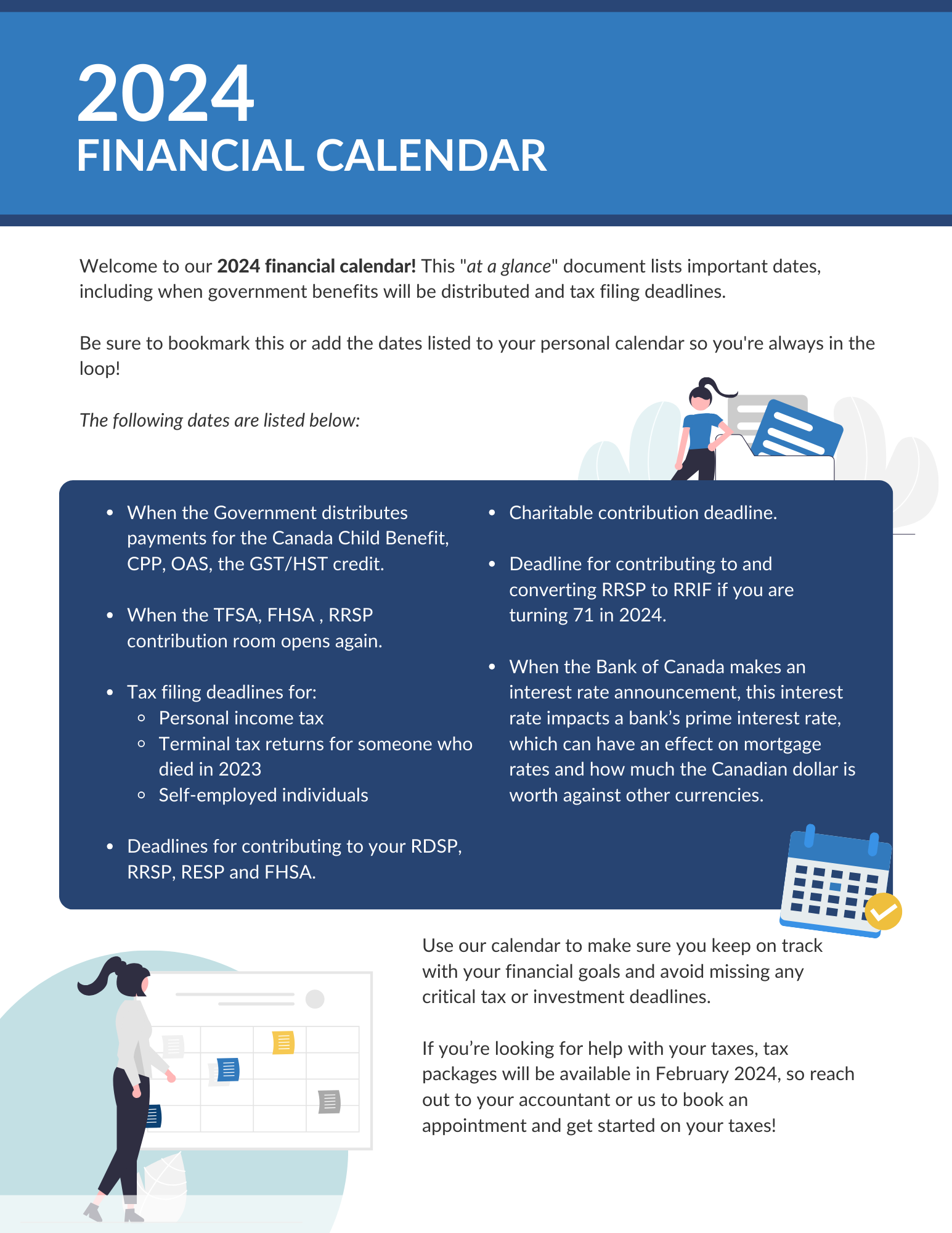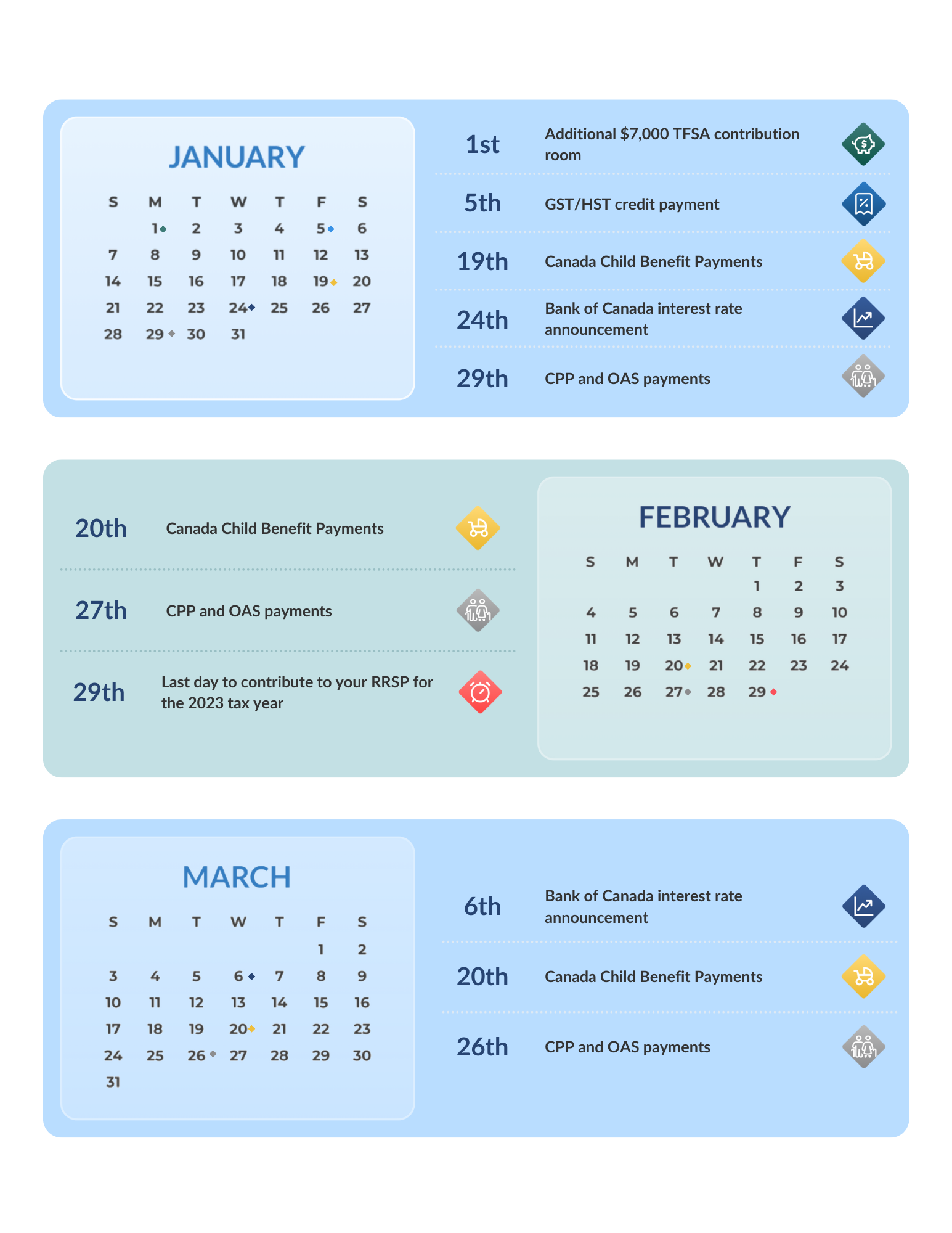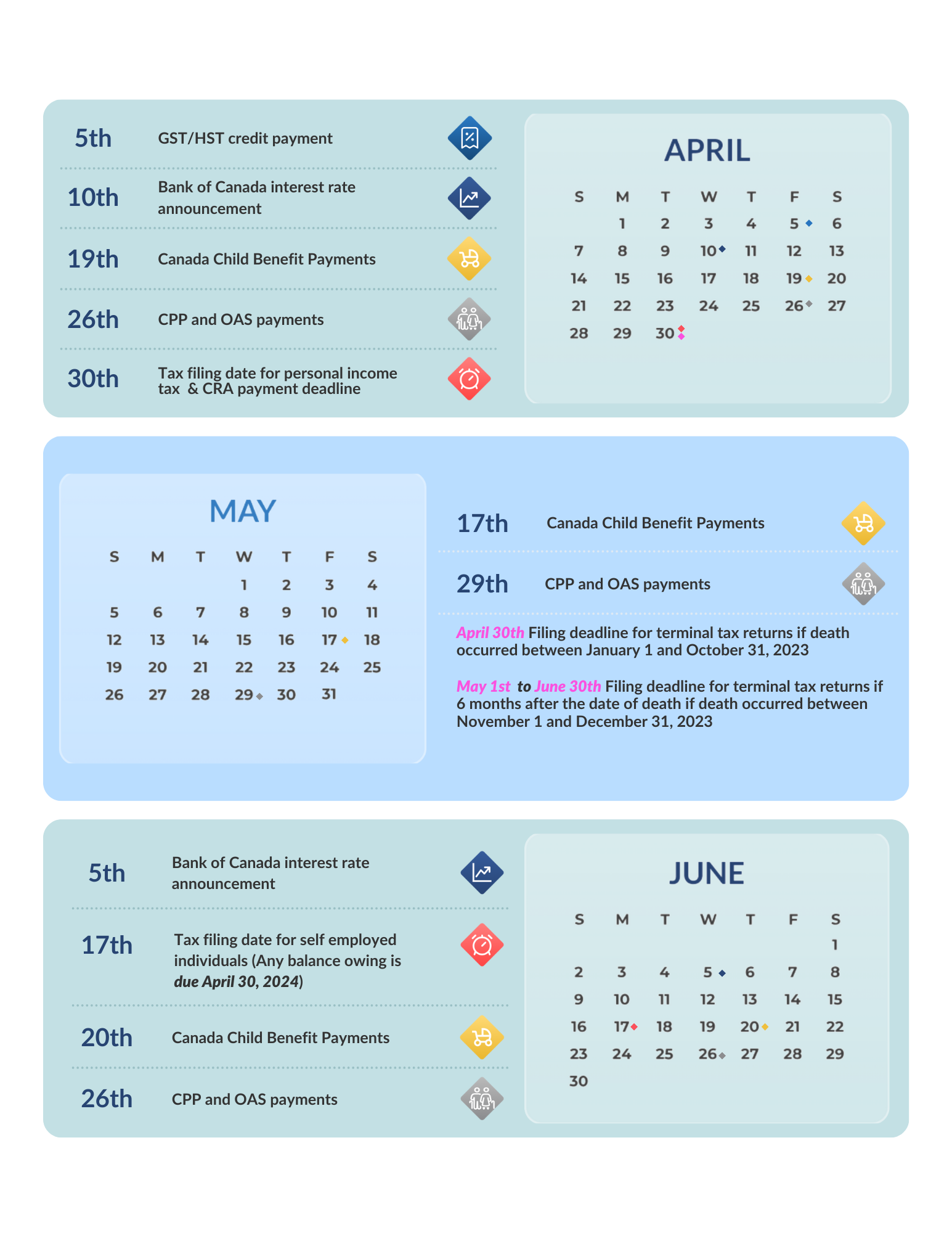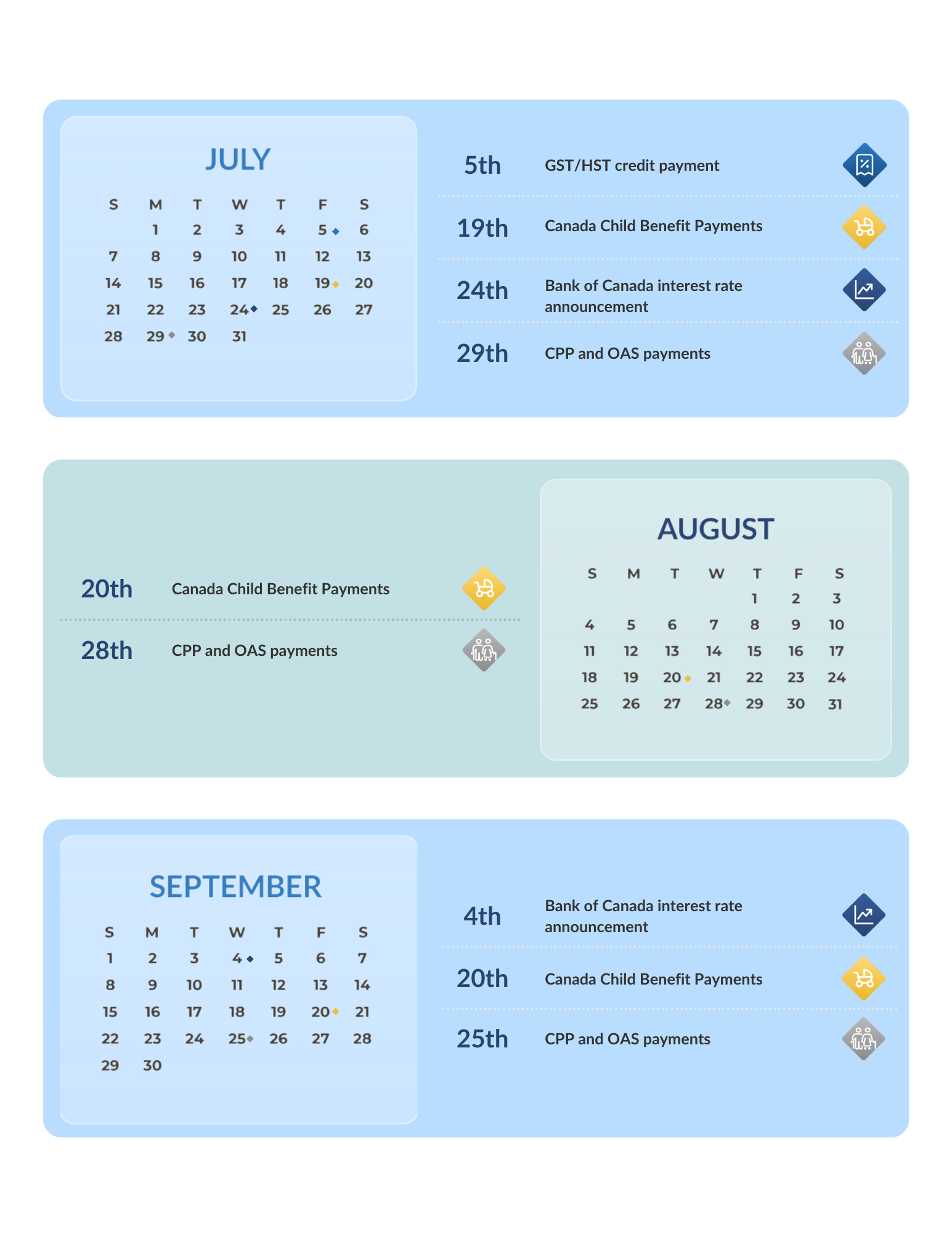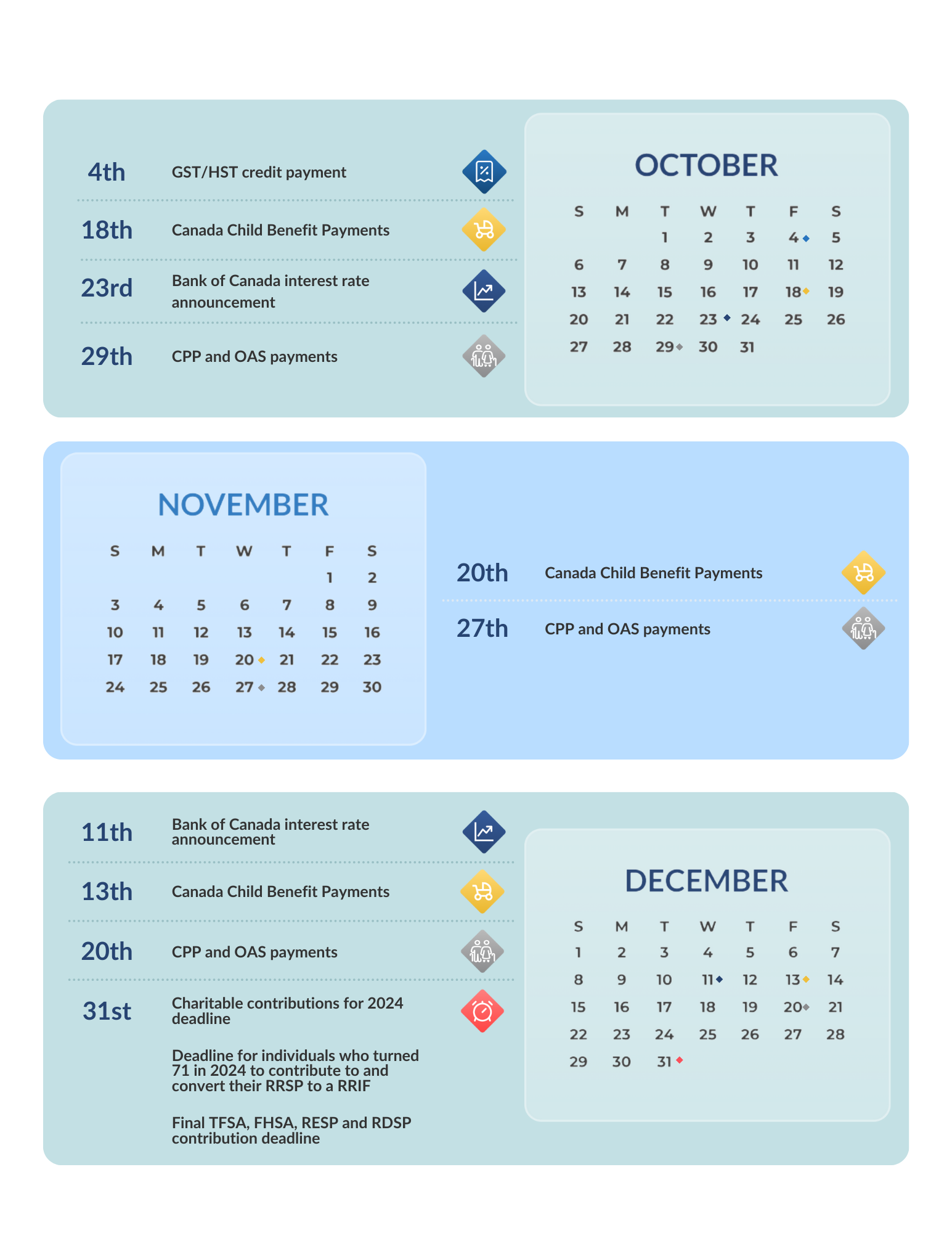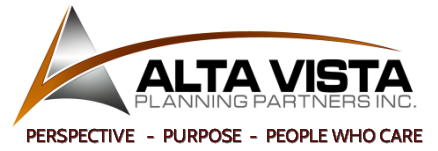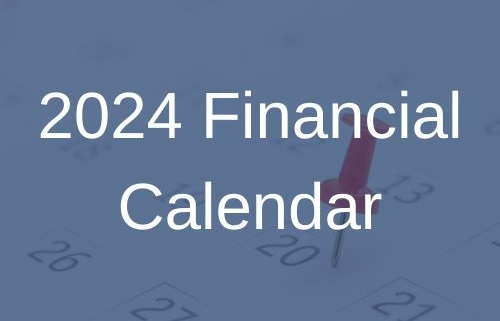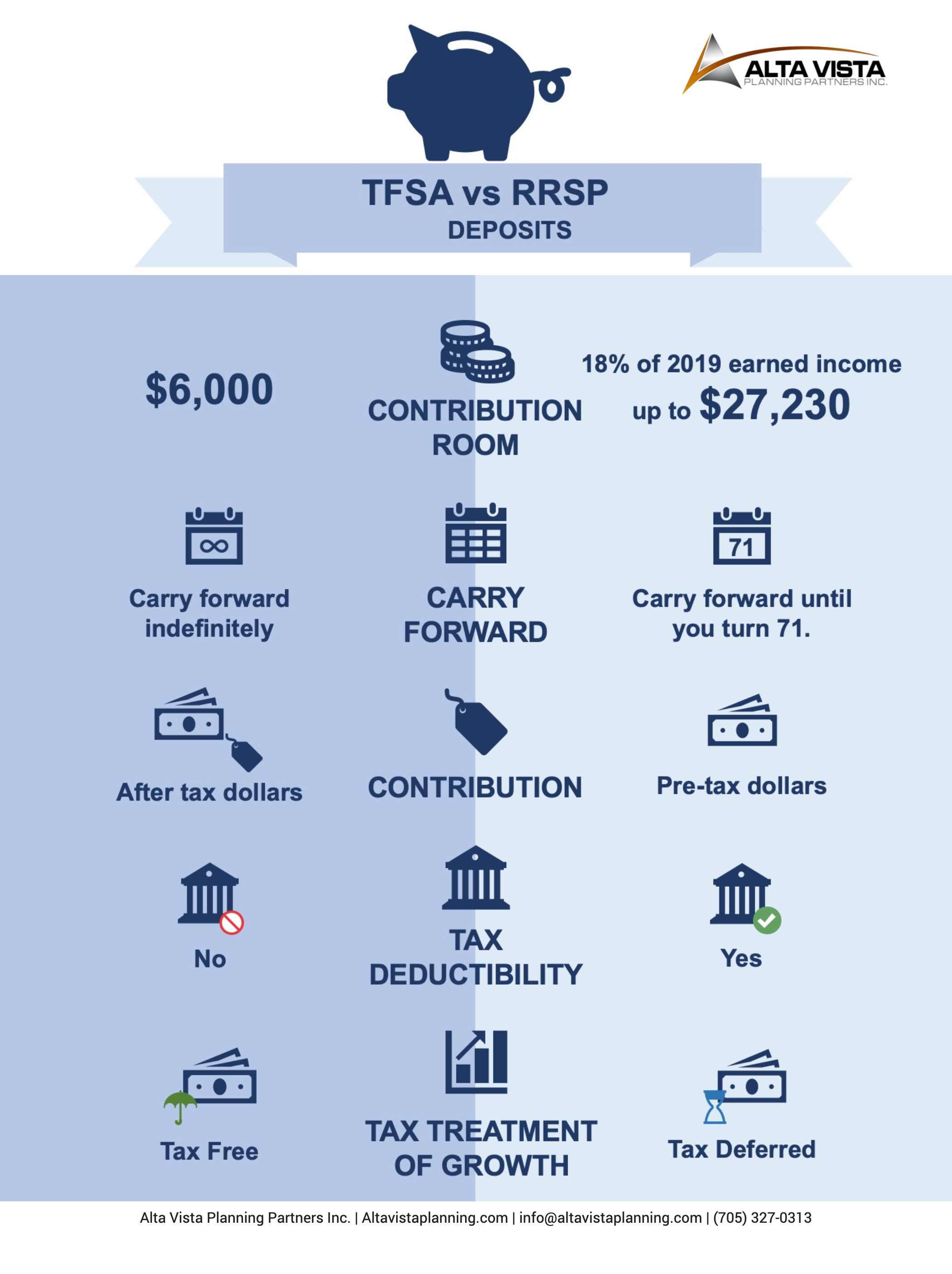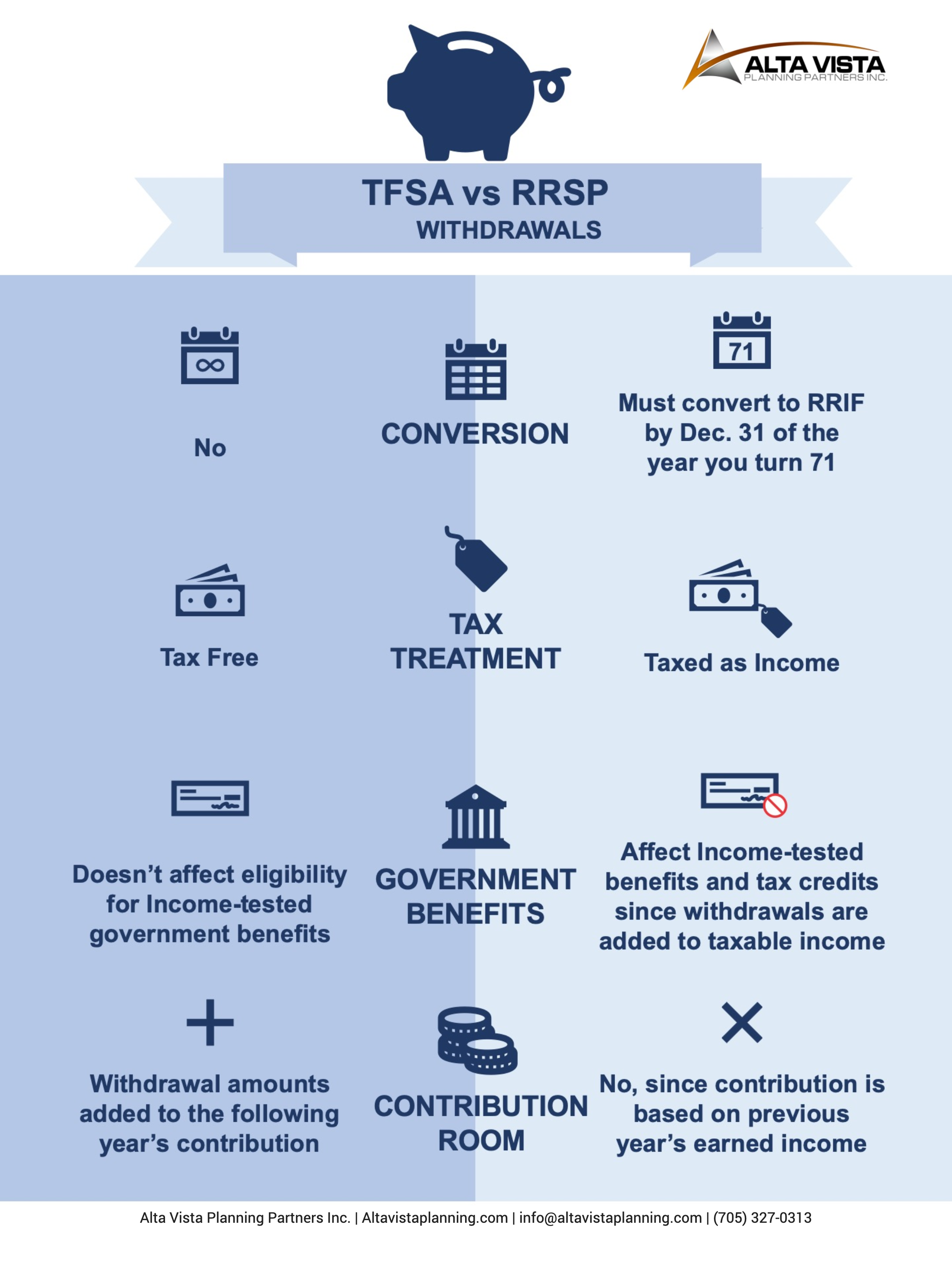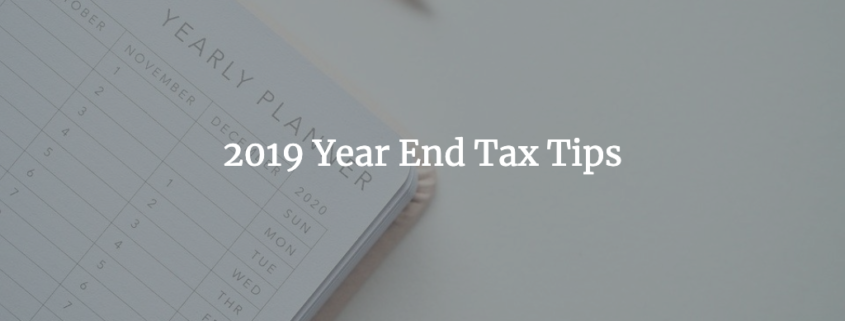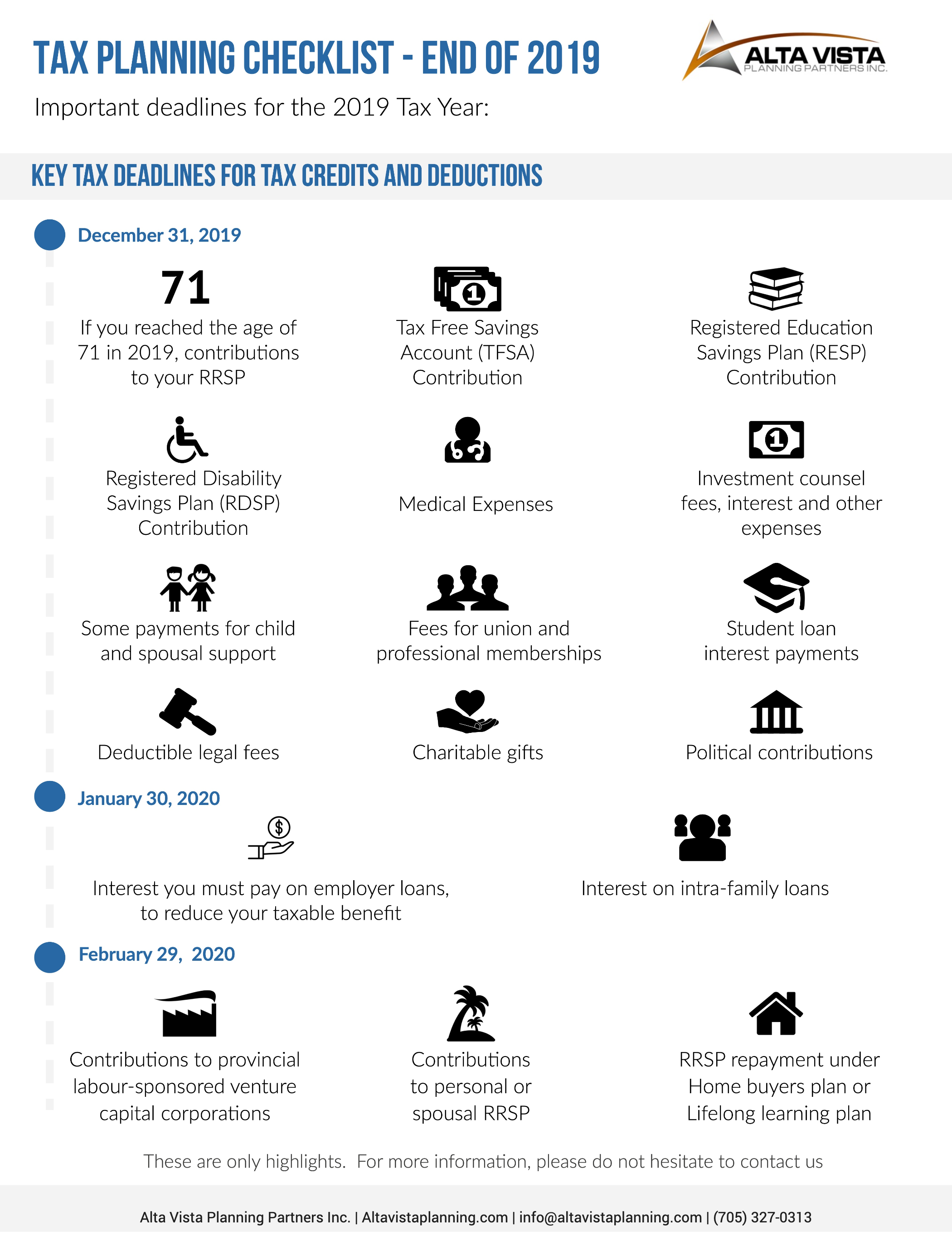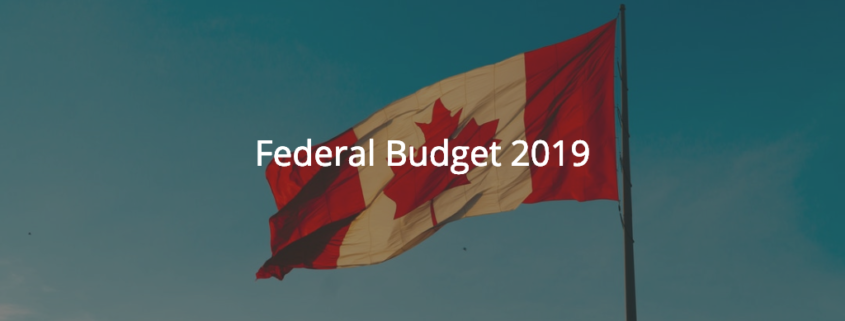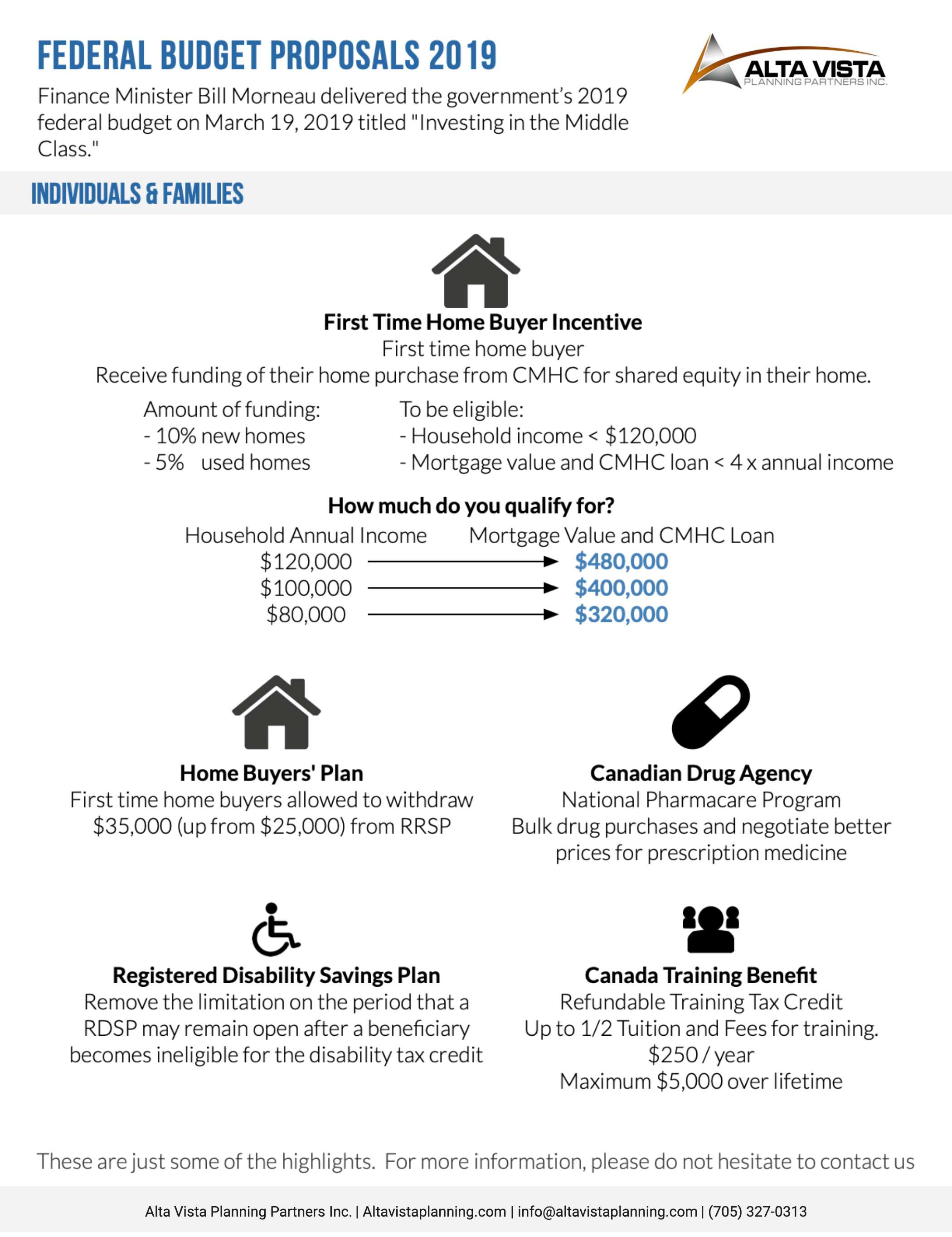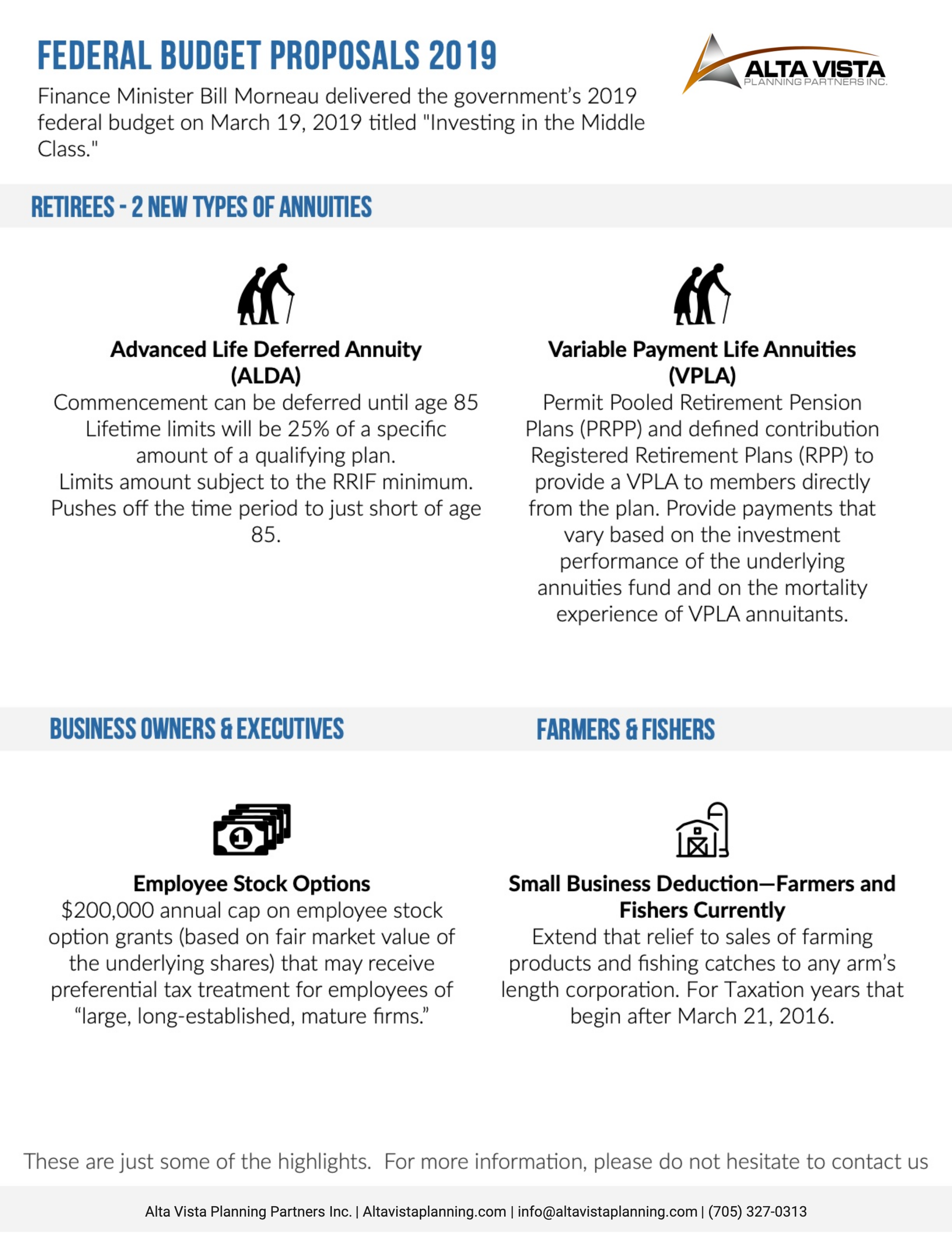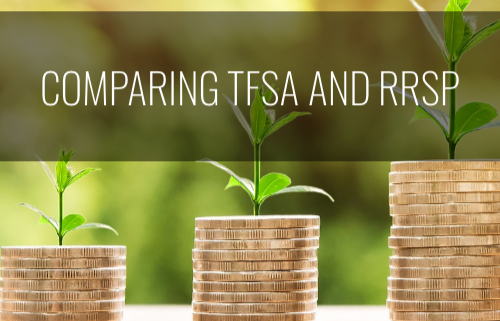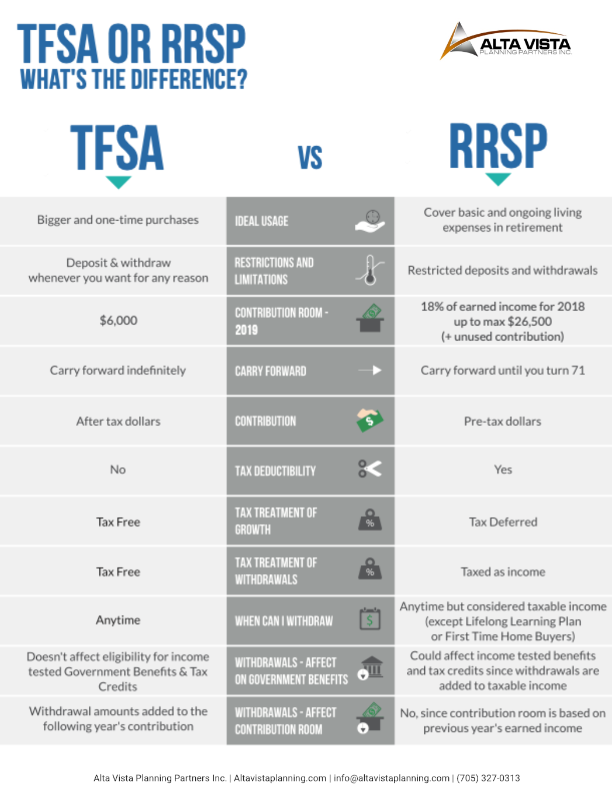2024 Financial Calendar
2024 Financial Calendar
Welcome to our 2024 financial calendar! This calendar is designed to help you keep track of important financial dates and deadlines, such as tax filing and government benefit distribution. You can bookmark this page for easy reference or add these dates to your personal calendar to ensure you don’t miss any important financial obligations.
If you need help with your taxes, tax packages will be available starting February 2024. Don’t wait until the last minute to get started on your tax return – make an appointment with your accountant to ensure you’re ready to go when tax season arrives.
Important 2024 Dates to Know
On January 1, 2024 the contribution room for your Tax Free Savings Account opens again. The maximum contribution for 2024 is $7,000.
If you qualify, on January 1, 2024 the contribution room for your First Home Savings Account opens. The maximum contribution for 2024 is $8,000.
For your Registered Retirement Savings Plan contributions to be eligible for the 2023 tax year, you must make them by February 29, 2024.
GST/HST credit payments will be issued on:
-
January 5
-
April 5
-
July 5
-
October 4
Canada Child Benefit payments will be issued on the following dates:
-
January 19
-
February 20
-
March 20
-
April 19
-
May 17
-
June 20
-
July 19
-
August 20
-
September 20
-
October 18
-
November 20
-
December 13
The government will issue Canada Pension Plan and Old Age Security payments on the following dates:
-
January 29
-
February 27
-
March 26
-
April 26
-
May 29
-
June 26
-
July 29
-
August 28
-
September 25
-
October 29
-
November 27
-
December 20
The Bank of Canada will make interest rate announcements on:
-
January 24
-
March 6
-
April 10
-
June 5
-
July 24
-
September 4
-
October 23
-
December 11
April 30, 2024 is the last day to file your personal income taxes, and tax payments are due by this date. This is also the filing deadline for final returns if death occurred between January 1 and October 31, 2023.
May 1 to June 30, 2024 would be the filing deadline for final tax returns if death occurred between November 1 and December 31, 2023. The due date for the final return is six months after the date of death.
The tax deadline for all self-employment returns is June 17, 2024. Payments are due April 30, 2024.
The final Tax-Free Savings Account, First Home Savings Account, Registered Education Savings Plan and Registered Disability Savings Plan contributions deadline is December 31.
December 31 is also the deadline for 2024 charitable contributions.
December 31 is also the deadline for individuals who turned 71 in 2024 to finish contributing to their RRSPs and convert them into RRIFs.
Please reach out if you have any questions.
